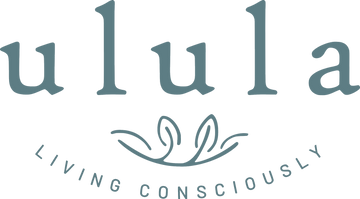Holle: From Climate Neutral to Climate Positive
Holle, the organic baby food pioneer, has further increased its sustainability.

All Holle milk formulas are now climate positive
All of the milk formulas produced by Holle the Demeter-certified manufacturer of food products for babies and small children now feature the €œclimate neutral€ certification. From this point on, they are taking another step towards sustainability and now offers its entire range of milk formulas as climate-positive products. This means that Holle offsets more harmful greenhouse gases than are produced throughout the entire raw materials chain, production chain and supply chain right through to the products taking their place on store shelves.
Holle has been pioneering organic baby food, since it was founded over 85 years ago. The majority of the product range for infants and small children is produced according to Demeter standards using biodynamic farming practices. Since 2013, Holle has been gradually making its range of milk formula products climate neutral, and a large percentage of the rest of Holle's product range has followed the same path.
From climate neutral to climate positive
Making the move to climate-positive milk formulas: Holle is always working on ways to optimise and minimise the consumption of resources. However, some of the greenhouse gases produced throughout the value chain and during processing are not easy to reduce. These emissions are calculated in cooperation with the climate experts at Soil & More Impacts and offset as part of regional and international emission reduction projects. With these projects, Holle offsets more emissions than it causes and is therefore able to offer climate-positive milk formulas from this point on still in the same Demeter-certified and organic quality, of course.

Climate positive To help us achieve the global warming goal of 1.5 degrees Celsius
The range of food products for babies and small children the majority of which are Demeter certified already have a net positive impact on the climate. The biodynamic farming practices used on Demeter farms which are based on the concept of a circular economy significantly reduce emissions of harmful greenhouse gases compared to traditional farming practices. Furthermore, this method of cultivation improves carbon sequestration in the soil.
For many years, Holle has been making continuous improvements to its own value chain and now offers climate-positive products. Holle's decision to collaborate mainly with production partners in Germany, Austria and South Tyrol reduces the transport distances from cultivation to production and the associated CO2 emissions.
Holle's commitment to regional and international CO2 reduction projects is part of the company's sustainability plan. The projects support the conservation of natural resources. An example of this is the biodiversity and forest protection project in Zimbabwe.

€œOur CO2 emission reduction projects support the conservation and reforestation of forests in Zimbabwe. In addition to our international projects, we are also involved in regional projects in Germany to improve composting, and as a result, improve soil quality. The certificates we have received were awarded to us on the basis of consistent monitoring by a renowned monitoring body€, explains Viola Hechinger, Sustainability Manager at Holle.
Milk formulas: The first step towards a climate-positive product range
The decision to make the entire range of milk formulas climate-positive products underlines Holle's commitment to meet the objective agreed as part of the Paris Climate Agreement to limit global warming to 1.5 degrees Celsius.
€œWe made a conscious decision to start with the milk formulas, because the smallest members of our society are a vulnerable group. They are the ones who are going to be affected the most by the challenges associated with climate change€, Udo Fischer, Managing Director at Holle.
You can find more: www.holle-climatepositive.com


